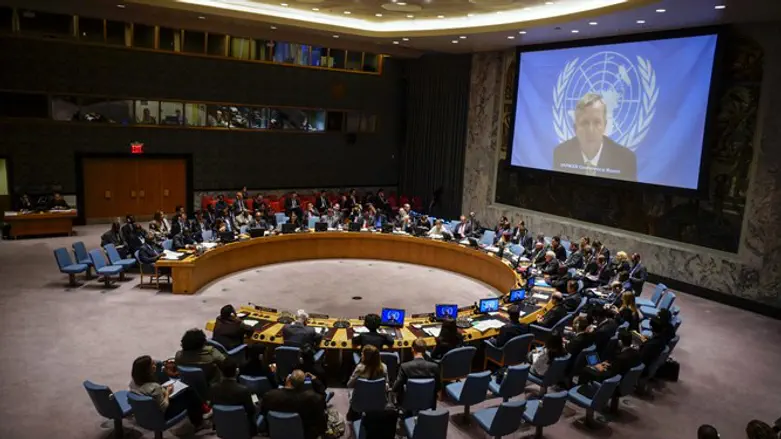
Russia on Thursday used its veto power for the tenth time at the United Nations Security Council since the Syrian civil war began in 2011, this time blocking a U.S.-drafted resolution to renew an international inquiry into who is to blame for chemical weapons attacks in Syria.
The mandate for the joint inquiry by the UN and the Organization for the Prohibition of Chemical Weapons (OPCW), which found the Syrian government used the banned nerve agent sarin in an April 4 attack, expires at midnight Thursday, noted Reuters.
A resolution needs nine votes in favor and no vetoes by the United States, France, Russia, Britain or China to be adopted. The U.S. draft received 12 votes in favor and abstentions by China and Egypt.
Syrian ally Russia withdrew its own rival draft resolution to renew the inquiry, formally known as the Joint Investigative Mechanism (JIM), shortly before the council vote on the U.S. draft. Diplomats said the Russian draft text had little support among the 15-member council.
Last month, Russia vetoed a similar resolution that would have extended for a year the mandate the panel investigating who is behind the chemical weapons attacks in Syria.
U.S. Ambassador to the United Nations Nikki Haley told reporters before Thursday's vote that she had been unable to speak to her Russian counterpart Vassily Nebenzia this week about the inquiry's renewal. She said the United States had amended its draft several times in a bid to win Russian support for measure.
"For some reason the phones at the Russian mission aren't working. We have tried to get a call with them and they've been too busy to talk to us this week and when I have tried to call Vassily for some reason he's not available," Haley said, according to Reuters.
Ahead of the council vote, U.S. President Donald Trump urged the Security Council to renew the inquiry, saying it was needed to prevent Syrian President Bashar Al-Assad from using chemical weapons.
"Need all on the UN Security Council to vote to renew the Joint Investigative Mechanism for Syria to ensure that Assad Regime does not commit mass murder with chemical weapons ever again," Trump said in a note on Twitter.
Russia has sharply criticized the JIM after its latest report blamed the Syrian air force for a sarin gas attack on the opposition-held village of Khan Sheikhun that left scores dead last April.
The Syrian regime denies having any connection to the April attack and, in general, to any chemical weapons attacks in Syria.
The OPCW has in the past determined that civilians in Syria may have been exposed to chemicals even after the Syrian government agreed to a 2013 deal, brokered by the U.S. and Russia, to surrender its chemical weapons.
